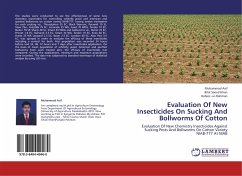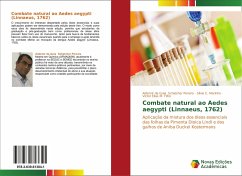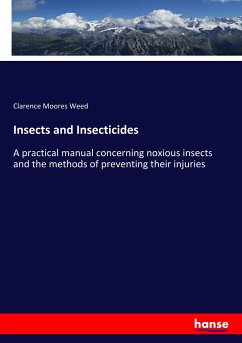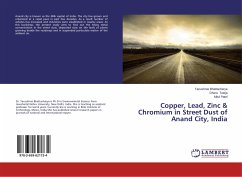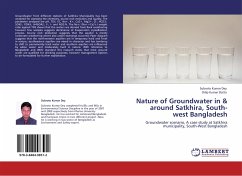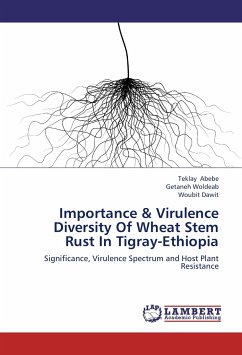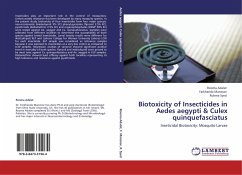
Biotoxicity of Insecticides in Aedes aegypti & Culex quinquefasciatus
Inseticidal Biotoxicity: Mosquito Larvae
Versandkostenfrei!
Versandfertig in 6-10 Tagen
32,99 €
inkl. MwSt.

PAYBACK Punkte
16 °P sammeln!
Insecticides play an important role in the control of mosquitoes. Unfortunately resistance has been developed by many mosquito species. In the present study, biotoxicity of four insecticides from four major groups: neo-nicotenoids (imidacloprid 5% SC) phenyl-pyrazoles (fipronil 2.5% EC), pyrethroids (deltamethrin 2.5% SC) and organophosphates (DDVP 50% EC) were tested against Ae. aegypti and Cx. quinquefasciatus. Samples were collected from different localities to determine the susceptibility of both species against tested insecticides. Larval toxicity results were different for (KotLakhpat) K...
Insecticides play an important role in the control of mosquitoes. Unfortunately resistance has been developed by many mosquito species. In the present study, biotoxicity of four insecticides from four major groups: neo-nicotenoids (imidacloprid 5% SC) phenyl-pyrazoles (fipronil 2.5% EC), pyrethroids (deltamethrin 2.5% SC) and organophosphates (DDVP 50% EC) were tested against Ae. aegypti and Cx. quinquefasciatus. Samples were collected from different localities to determine the susceptibility of both species against tested insecticides. Larval toxicity results were different for (KotLakhpat) KLP and (Lahore College for Women University Lahore) LCW for each insecticide. KLP sample was considered as reference samples because it was exposed to insecticides at a very low extent as compared to LCW samples. Regression analysis of variance showed significant positive trend in mortality of both species. Fipronil and imidacloprid were proved to be most toxic against Cx. quinquefasciatus and Ae. aegypti in KLP samples. Deltamethrin showed least efficacy against both localities representing its high tolerance and resistance against pyrethroids.



